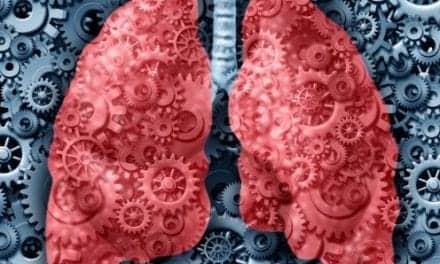Hyperprogressive disease describes an acceleration in tumor growth, as measured on computed tomography, wherein the tumor grows at a faster rate during immunotherapy than the rate at which it was growing before treatment started.
It has previously been described with immunotherapy (reported in 9% of patients with advanced cancer), but until now there have been no data on this phenomenon in patients with lung cancer.
At the meeting, researchers from the Institut Gustave Roussy, Villejuif, France, led by Roberto Ferrara, MD, presented data from a retrospective analysis of patients they had treated with advanced non-small cell lung cancer (NSCLC).
They looked specifically for hyperprogressive disease and found it occurred in 14% of patients with advanced NSCLC receiving immunotherapy (single-agent programed cell death inhibitors) and in 5% of patients receiving single-agent chemotherapy.









